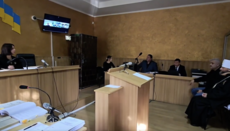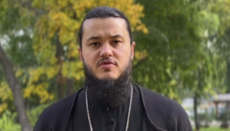Amsterdam explains how the anti-church law contradicts norms

The American lawyer explained what sanctions threaten Ukraine if bill 8371 is adopted.
Robert Amsterdam, head of the international human rights company Amsterdam & Partners LLP and a lawyer for the UOC, said that the anti-church bill 8371 being prepared for adoption in the Verkhovna Rada contradicts Ukrainian legislation and norms of international law. He reported this in a comment to Strana.ua.
In his opinion, the bill contradicts both Article 35 of the International Covenant on Civil and Political Rights and Article 9 of the European Convention on Human Rights, which guarantee freedom of religion. he also noted that the anti-church law also contradicts Ukraine's own Constitution, which also guarantees freedom of religion in Article 35.
"Should the Verkhovna Rada pass this bill, all deputies who vote for it will bear personal responsibility, potentially including sanctions under the U.S. Global Magnitsky Act, as well as possible criminal penalties," Amsterdam's letter said.
According to lawyer Amsterdam, banning the UOC is not necessary, just as it is not possible to punish all believers of the Church collectively.
The defender of the UOC believes that the disproportionate, discriminatory collective punishment provided for by this bill is simply incompatible with Ukraine's international legal obligations.
The American lawyer explained that voting for the law in the second reading will block Ukraine's accession to the EU based on the requirements of the Copenhagen criteria for human rights protection. He also emphasized that in the event of the law's adoption, the UOC will appeal to all relevant courts and tribunals, wherever they may be located, as well as to all legislative bodies, seeking justice.
As the UOJ reported, the lawyer of the UOC stated that by adopting bill 8371, deputies want to force Ukrainians to accept the OCU as the state church.





